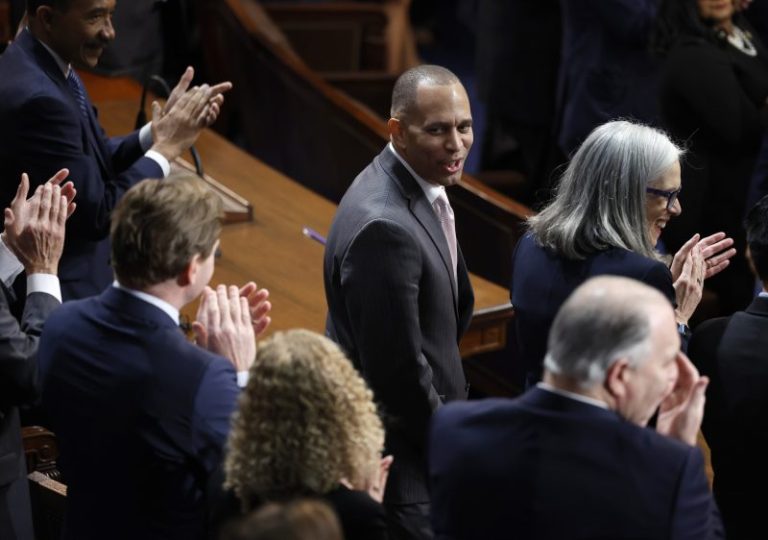As I write, the House of Representatives is wrapping up its sixth attempt to elect a speaker. Over two days, the leaders of the Democratic and Republican caucuses in the chamber have each received more than 200 votes apiece on each of those ballots, but too few to actually secure the position. Over and over, the same thing: a slow reading of the names of the members-elect and an accretion for both leading candidates of not-enough votes.
But on that sixth vote, something interesting happened. The Democratic candidate for the position, Hakeem Jeffries (D-N.Y.), earned his 1,273rd lifetime vote for the position. In so doing, he passed the lifetime total of former House speaker John A. Boehner (R-Ohio), 1,269 votes.
Jeffries may never be speaker; he almost certainly won’t be by the time the 118th Congress makes it choice. But he’ll still sit in the history books as one of the people to have received the most support for that position in history.
Using data from the Congressional Research Service stretching back to 1913 and adding in The Washington Post’s running tally, we can arrange the total lifetime tallies for the 30 party nominees over that period. Or, actually, using those sources and the Congressional Record reports of the nine ballots it took to choose a speaker in 1923, when Massachusetts Republican Frederick Gillett finally dispatched Tennessee Democrat Finis Garrett. (The state-party combinations there alone should convey how long ago this was.)
At the top: outgoing House Speaker Nancy Pelosi (D-Calif.). Then, Sam Rayburn, the Democratic speaker for a big chunk of the 20th century. Then Gillett and Garrett. And, a bit lower, both Jeffries and, above him, Republican caucus leader Kevin McCarthy (R-Calif.). McCarthy is ahead of Jeffries largely because he was the party’s speaker candidate in 2019 and 2021, as well.
There are some interesting aspects of the speaker votes that aren’t represented above. One is that both Jeffries and McCarthy received votes for speaker before they were their parties’ formal choices. That’s why Jeffries’s total is an odd number despite his having received 212 votes six times in a row: He also received a vote in 2021. McCarthy received votes in both of the speaker contests in 2015 — the one that reelected Boehner as speaker and the one that followed Boehner’s exasperated resignation later that year.
Those who’ve been watching the votes over the past two days are very aware that individuals other than those selected by their parties can get nominated. Byron Donalds (R-Fla.), for example, has received 61 total votes for speaker over those six votes, enough to move him into 32nd place since 1913. He’s just ahead of Jim Jordan (R-Ohio), who has 55 votes, including 45 this week.
The lowest-ranking party nominee on our chart above is North Carolina Democrat Claude Kitchin. He lost the 1921 speaker contest, earning only 122 votes. That means that he received fewer votes over the course of his career than did Wisconsin Republican Henry Cooper — the candidate who siphoned off votes from Gillett on eight of those nine ballots in 1923.
It’s not clear how many more ballots will be required before a speaker is selected this year. McCarthy will almost certainly pass Illinois Republican Robert Michel, the party’s perennial nominee in the era of Democratic dominance last century. McCarthy needs only 80 votes to pass Michel’s total.
Jeffries, too, is likely to pass the next two Democrats in line — legendary Speakers John McCormack and Tip O’Neill. He’s only about 20 votes from doing so, making him the Democrat to have received the fourth-most votes for speaker in the last 110 years, behind only Pelosi, Sam Rayburn and 1923’s unsuccessful Garrett.
Pelosi’s record seems secure. It would take more than six additional votes in which Jeffries accrued the support of 212 of his colleagues before he passed her and five for McCarthy to do so.
Then again, given how things have gone this week, maybe she might want to worry about that record after all.

